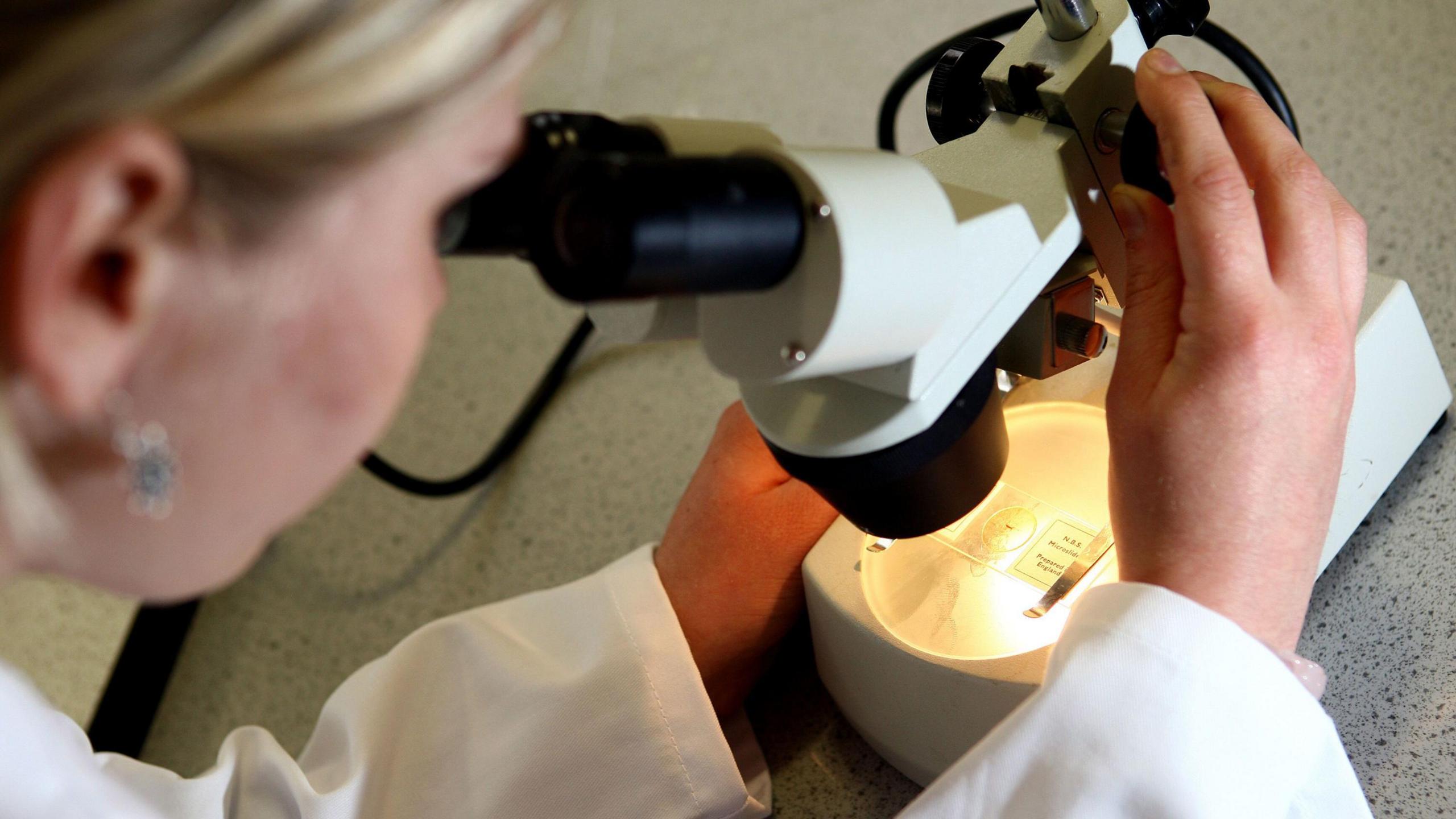Restless leg study could 'improve millions of lives'

Researchers found that, despite the condition being twice as common in women as men, there were no strong genetic differences
- Published
Scientists from Cambridge University have taken part in the "largest of its kind" research into restless leg syndrome.
They discovered genetic clues to the cause of the condition which could help identify people who are at greatest risk and potential ways to treat it.
Restless leg syndrome, external is believed to affect up to one in 20 adults and can cause severe sleep deprivation.
Dr Steven Bell from Cambridge University, who co-authored the research, said it was "potentially improving the lives of many millions of people".
Restless leg syndrome, external affects the nervous system, causing an irresistible urge to move the legs and is associated with a crawling or creeping sensation.
The research has been funded by NHS Blood and Transplant, external England and published by Nature Genetics, external.
International researchers from the Helmholtz Munich Institute of Neurogenomics, the Institute of Human Genetics of the Technical University of Munich (TUM) and Cambridge University worked on the project.
Dr Bell said: "This study is the largest of its kind into this common - but poorly understood - condition.
"By understanding the genetic basis of restless leg syndrome, we hope to find better ways to manage and treat it, potentially improving the lives of many millions of people affected worldwide."
'We are empowered'
The researchers found that, even though the condition was twice as common in women as men, there were no strong genetic differences.
Researchers were also able to identify genetic differences in genes that are important for brain and nerve function, which could potentially be targeted by existing drugs.
They said that it would be possible to use information about age, sex and genetic markers to rank who is more likely to have a severe case of the syndrome and understand how the condition as a whole might affect overall health.
One of the senior authors of the study, Professor Juliane Winkelmann from TUM, said: "For the first time, we have achieved the ability to predict restless leg syndrome risk.
"It has been a long journey, but now we are empowered to not only treat but even prevent the onset of this condition in our patients."
Follow Cambridgeshire news on Facebook, external, Instagram, external and X, external. Got a story? Email eastofenglandnews@bbc.co.uk, external or WhatsApp us on 0800 169 1830
Related topics
- Published25 December 2017
